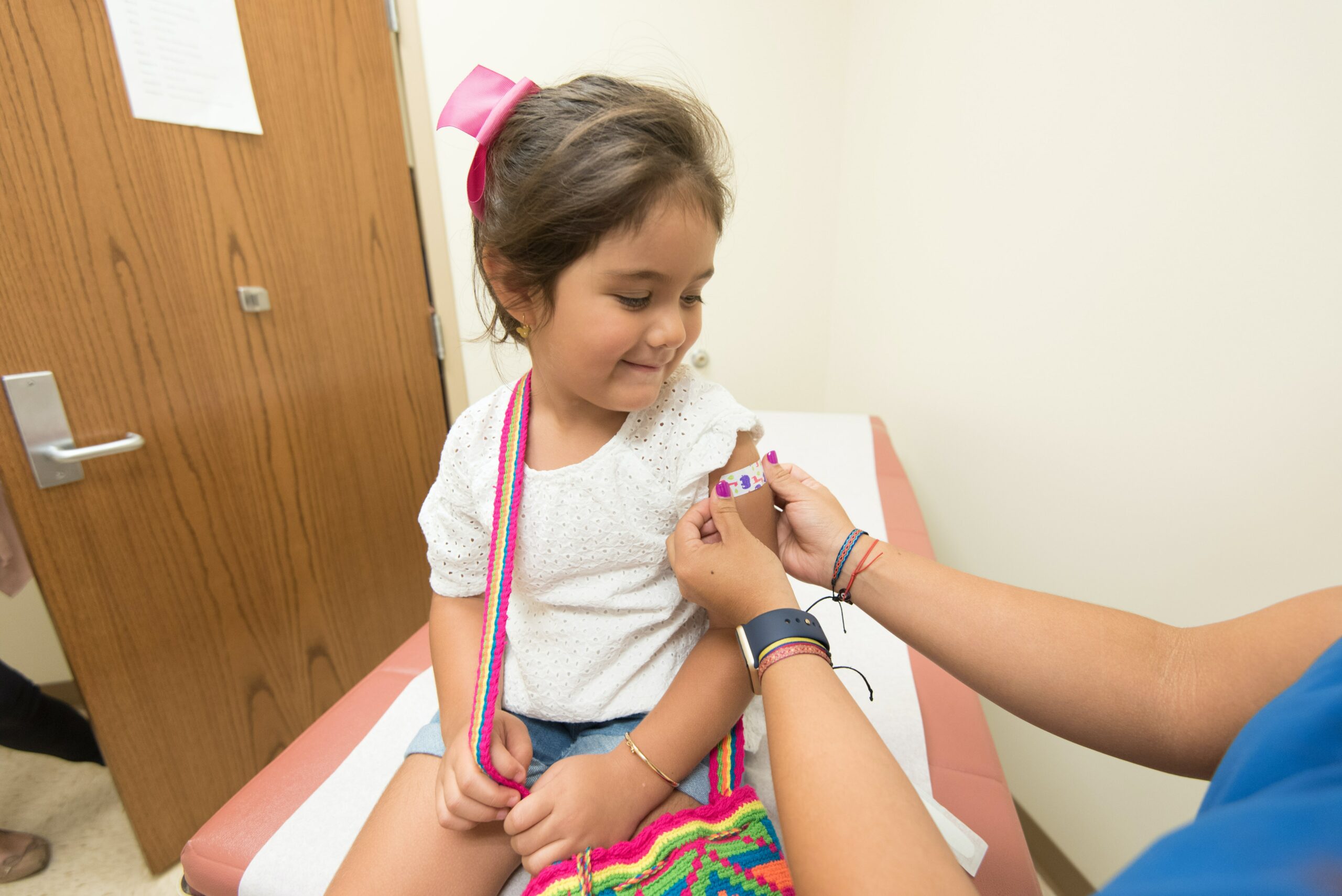Nudging paediatricians to help parents
A behavioural experiment encourages conversation within clinics in Jordan
A behavioural experiment encourages conversation within clinics in Jordan
 Photo: Courtesy Bernard van Leer Foundation.
Photo: Courtesy Bernard van Leer Foundation.
When it comes to early childhood in Jordan, healthcare facilities are the main space to reach people from all socioeconomic backgrounds. Public and private healthcare facilities together cover 20% of children. This is why the Royal Health Awareness Society (RHAS), a Jordanian non-profit that implements preventive public health and safety programmes, targeted healthcare facilities when we designed an intervention to create more and better connections between caregivers and their infants.
“The behaviour we wanted to encourage was paediatricians and other healthcare providers initiating conversations with parents about how to stimulate children.”
By working with paediatricians and nurses, we hoped to encourage more communication between them and caregivers. We saw the potential to transform routine appointments for vaccinations and other health checkups into counselling opportunities at which caregivers could learn how to better support their children. The behaviour we wanted to encourage was paediatricians and other healthcare providers initiating conversations with parents about how to stimulate children, while offering counselling and information and inviting questions.
We began by interviewing paediatricians, nurses and parents to understand the behavioural barriers that currently hinder the provision of counselling within the clinics. The main barrier for the healthcare providers was lack of time, given the high number of patients they have to see on a daily basis. Paediatricians also tended to see their role as confined to looking after a child’s physical health. The counselling of parents only becomes necessary if a child has significant developmental delays – an issue that still comes with a lot of stigma in Jordan.
We heard from parents that they like the idea of spending more time in the clinic talking to their child’s healthcare provider about early childhood development, but they do not have a clear idea of what the subject entails. Parents tend to trust that family members with previous experience in child rearing can sufficiently support them with guidance. This reflects how Jordan’s close-knit social fabric centres on the family.
While the overall aim of the project is to support caregivers in taking better care of children overall, during the initial pilot we decided to focus more narrowly on the 12- to 24-month age group and two specific behaviours: making eye contact while talking to the child, and finding ways to avoid screen time. We created and tested simple “prescription” leaflets, sharing evidence-based information about each behaviour, that paediatricians could give to and discuss with parents.
We created colour-coded stickers for each prescription. When a caregiver shows up at a health centre with a child, the nurse – while screening the child’s health more generally – asks questions to see whether it would be helpful for that family to be advised on either of the two specific behaviours. If so, the nurse applies a sticker to the child’s file, which alerts the paediatrician to share the appropriate leaflet and start a conversation with the family, giving tips and asking questions. The family also leaves with a leaflet, designed to be visually appealing to the child and parents, as a reminder to practise the behaviour at home.
The design of the stickers – and posters, which we also created to display in the clinic – intentionally includes images which show fathers interacting with their children, in an attempt to send indirect messages to tackle the lack of male engagement in parenting in Jordan.
We tested our prototype at a health centre in Amman, working with one paediatrician and two nurses. The intervention was well received by parents, with some mentioning that it was the first time they had received advice on parenting behaviours at the clinic. One mother asked if she could be part of the team and volunteer to deliver the messages. However, the barrier of lack of time on the side of healthcare providers proved hard to overcome in this instance. The health centre was very crowded and understaffed, which led to the paediatrician being unable to spend much time in conversation with the caregivers.
The blue sticker focuses on eye contact, the yellow sticker focuses on screen time, and the purple sticker is a reminder to be physically at the child’s level (eye level) when talking to them.
“We hope the intervention will succeed in creating a more fluid relationship between caregivers and paediatricians.”
Starting in November 2022, we will embark on a larger-scale pilot. This will involve training 20 paediatricians from public and private clinics in the city of Amman and in the north of Jordan. The pilot, which will last for seven months, will assess whether doctors are able to provide more information and whether families will implement the advice they receive. Doctors will receive training on early childhood development and how to address it with families. Screens will also be used to make caregivers aware of the intervention as they wait in the clinic for their appointment.
We hope the intervention will succeed in creating a more fluid relationship between caregivers and paediatricians by opening more spaces for conversations around early childhood development. This could create new opportunities for parents to seek support for their children, ultimately leading to more tailored and individualised care.
All references can be found in the PDF version of this article.
See how we use your personal data by reading our privacy statement.
This information is for research purposes and will not be added to our mailing list or used to send you unsolicited mail unless you opt-in.
See how we use your personal data by reading our privacy statement.